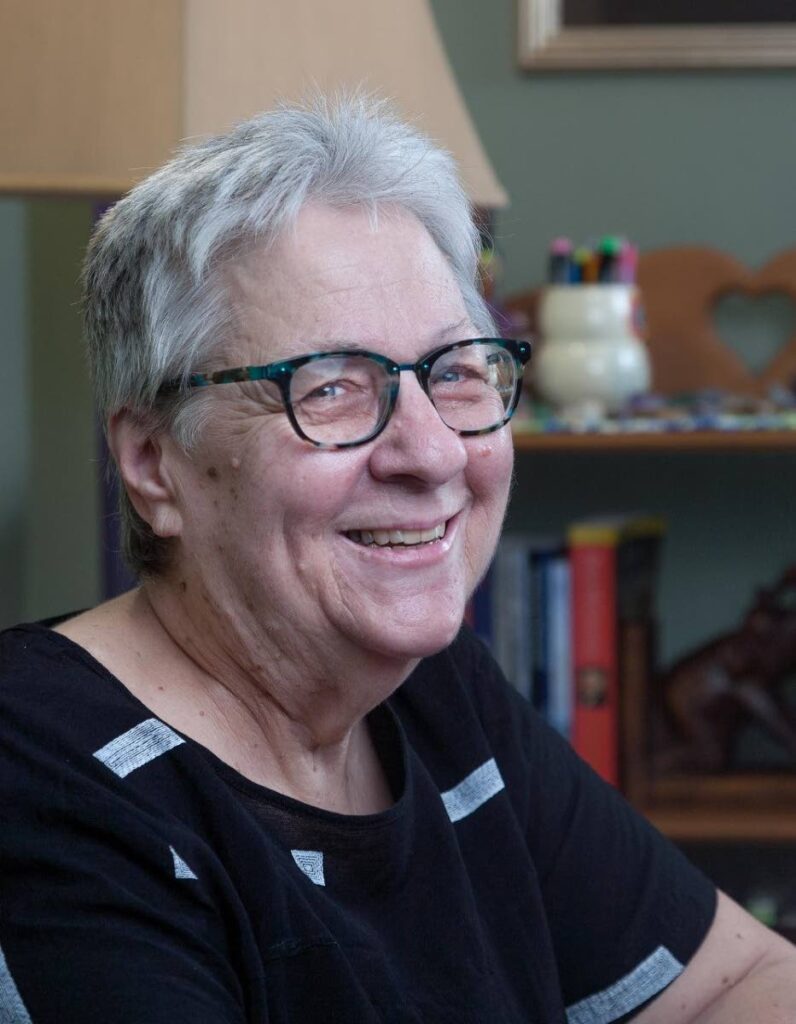The professor of calypso

DEBBIE JACOB
IT'S HARD to imagine a calypso tent without Dr Gordon Rohlehr sitting in the audience. The University of the West Indies (UWI) English professor emeritus and calypso expert died on January 29 at the age of 81. He had been an exemplary professor known for his work in analysing calypsoes, which he said were “the narratives of our culture.”
Rohlehr, born in Guyana, wrote much of our calypso history documenting the careers of Beginner, Atilla, Railway Douglas, Growling Tiger, Lord Kitchener, Roaring Lion and other early calypsonians. He wrote about pivotal moments in calypso history: the arrival of Sparrow, Maestro, Shadow and David Rudder.
In his career, Rohlehr accomplished what no government or calypsonian could do by elevating calypso to a lofty place in academia. As an English professor, he provided a wealth of information for English and history teachers to use in the classroom.
Rohlehr’s work clearly shows how calypsoes are important versions of history that record the thoughts and feelings of the masses. Calypso is the place where poor people’s struggles count.
Through Rohlehr’s extensive work on calypso history, we saw how this nation dealt with colonialism and indentureship. Calypso presented an authentic voice rooted in humour and double entendre – two powerful weapons of self-expression that could neither be understood nor extinguished by European domination. It served as a secret language giving hope, courage and pride for that marginalised part of society.
No one in this country enjoys freedom of speech on the level of the calypsonian. The rest of us have to measure our words at every turn so that we don’t violate outdated colonial libel laws. Calypsonians railed against convention to bring us uncensored information.
Rohlehr documented how calypsonians have wielded power and challenged politicians. He taught us that calypso is oral literature and just as important as written literature, and he graciously shared his knowledge and views with journalists. If you phoned him for a comment about a calypso, you had to be prepared to talk for hours.
Rohlehr had said, “It is possible to understand any given era in the Caribbean by studying calypso. You can analyse changes of attitude by just following calypso. It’s one form of documentation, and sometimes it’s the only form that can tell us from inside what people were thinking about.”
He was always highly analytical and never critical. I remember one interview when we spoke about the changing role of humour in calypso.
“Humour has got vicious in the last two decades, particularly political calypsoes,” he said. “There’s a harsh sarcasm. When these things happen we have to ask ourselves why.”
For Rohlehr, the operative question was always, “Why?”
His analysis of calypso milestone moments undoubtedly helped iconoclasts to establish themselves in the tradition of calypso.
“Shadow’s Bassman definitely had an enormous impact on calypso. It is a landmark,” he said.
He included David Rudder in the calypso conversation at a time when Rudder blurred boundaries between fetes and calypso tents to usher in a new age for calypso while firmly rooting it in the past.
Strangely enough, one conversation I had with him that was not about calypso crosses my mind almost every day since that last interview we had in 2019 for a feature I was writing on his last book, Perfect Fables Now: A Bookman signs off on Seven Decades.
Rohlehr spoke about the “culture of violence,” which he says began with the stickfights, then gangs, and ultimately supplied “the battalions of soldiers that have been building over the last 50 years.”
He believed our crime problems stemmed from stereotyping areas.
“We talk about hot spots, and we are very comfortable with invading those areas, isolating them and targeting them, but when you confront certain areas, you get more violence,” he said.
Then he said something I had never thought of and never forgotten.
The policemen come from the lower-class black and Indian culture, so it’s more black-on-black violence. Calypsonians have understood this.”
Every time I read a crime story – especially those about a raid – I think of Rohlehr’s words.
Rohlehr left us a wealth of information – books along with numerous print and television interviews that can be pulled off of the internet. His legacy is large and includes his place standing, metaphorically speaking, between calypsonians and the public.
Rohlehr was honoured and respected in his lifetime for his body of important work. His place in education and calypso history is guaranteed. Undoubtedly, 100 years from now, scholars and people interested in the Caribbean will still rely on Gordon Rohlehr’s work.
RIP, Dr Rohlehr. You were a gift to Trinidad and Tobago.


Comments
"The professor of calypso"